Find Help
More Items From Ergsy search
-

Chest infection: what should I do?
Relevance: 100%
-
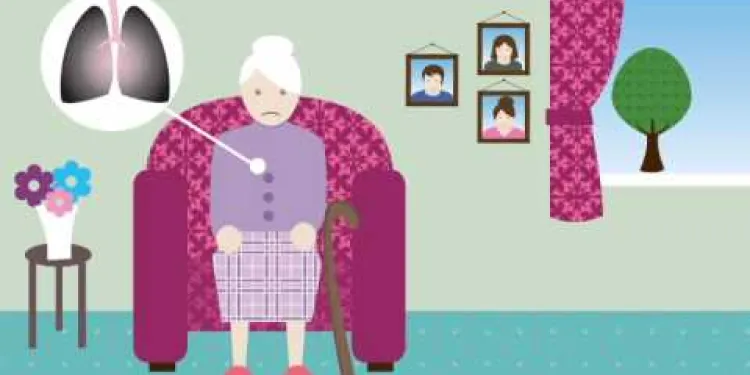
Dorothy's Story (Falls/Chest Infection)
Relevance: 93%
-
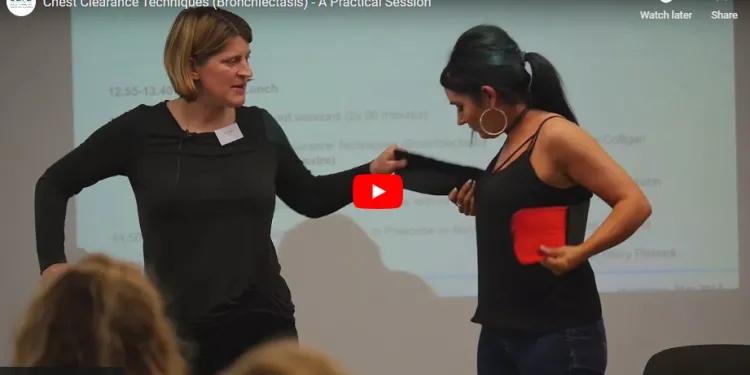
Chest clearance techniques
Relevance: 67%
-
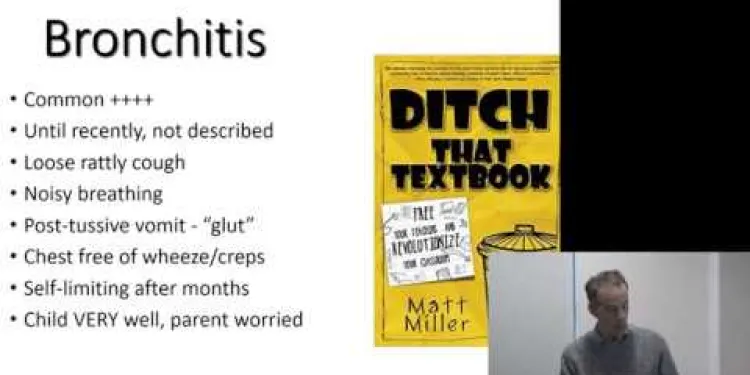
Bronchiolitis and chest infections in young children - Prof Steve Turner
Relevance: 64%
-

Is it possible to have a heart attack without chest pain?
Relevance: 53%
-
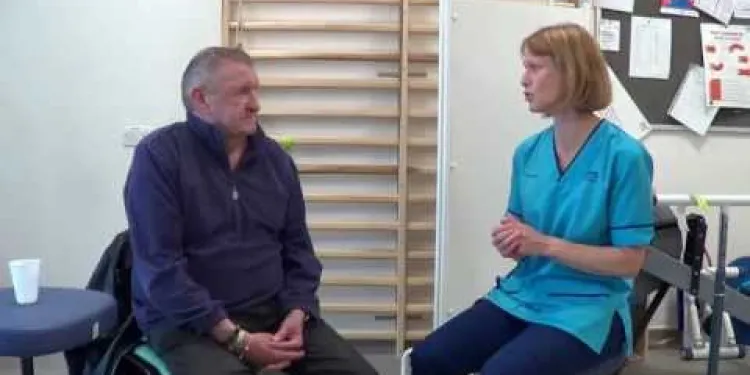
Clearing Your Chest with Breathing Exercises
Relevance: 44%
-

Can air physiotherapy prevent respiratory infections?
Relevance: 42%
-

Mycobacterium chimaera infection
Relevance: 41%
-

Are E. coli infections contagious?
Relevance: 41%
-

Are there symptoms of an HPV infection?
Relevance: 39%
-

Do antibiotics work on viral infections?
Relevance: 39%
-

Can E. coli infections be treated?
Relevance: 39%
-

How is E. coli infection diagnosed?
Relevance: 38%
-
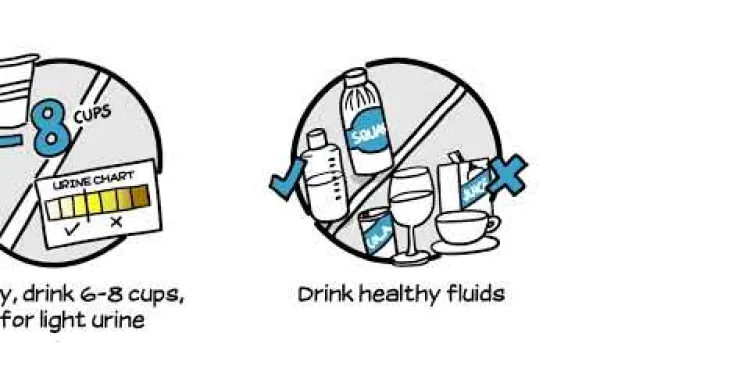
Avoiding infections with urinary incontinence
Relevance: 38%
-

What is Chikungunya virus infection?
Relevance: 38%
-

Can animals be infected with H3N2?
Relevance: 37%
-
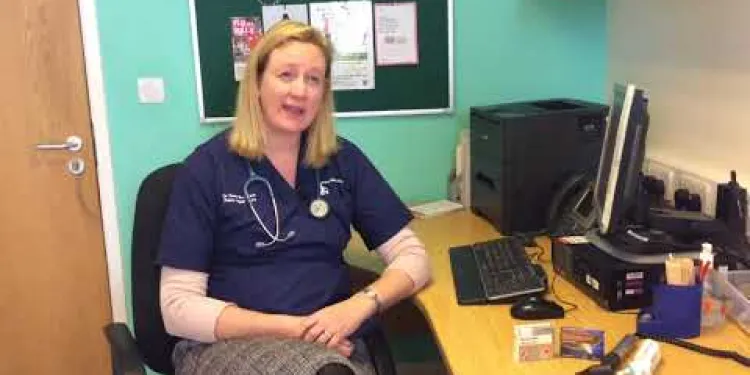
Self care: Treating ear infections
Relevance: 37%
-

Can a stoma bag cause infections?
Relevance: 37%
-

Can ear infections lead to tinnitus?
Relevance: 37%
-

Podiatrist Fungal feet - fungal infection of skin and nails and how to prevent fungal infection in feet
Relevance: 37%
-

What are the symptoms of Nipah Virus infection?
Relevance: 37%
-

How do people get infected with E. coli?
Relevance: 36%
-

How can E. coli infections be prevented?
Relevance: 36%
-

Sexually transmitted infections STIs
Relevance: 36%
-

Who is at risk for severe Chikungunya infection?
Relevance: 36%
-

How is Chikungunya virus infection diagnosed?
Relevance: 36%
-

Can Chikungunya virus infection be treated?
Relevance: 36%
-

What populations are at higher risk for E. coli infections?
Relevance: 35%
-

How soon do symptoms appear after infection?
Relevance: 35%
-

Antibiotics and You: An introduction to antibiotic resistant infections
Relevance: 34%
-

What role do infections play in chronic fatigue syndrome?
Relevance: 34%
-

What are opportunistic infections?
Relevance: 34%
-

How can I prevent norovirus infection?
Relevance: 34%
-

Are there any long-term effects of Chikungunya infection?
Relevance: 33%
-

Can bacterial infections be transmitted through blood transfusion?
Relevance: 33%
-

Can gonorrhoea infect areas other than the genital organs?
Relevance: 33%
-

Can men in the UK transmit Zika virus if infected?
Relevance: 33%
-

What is the mortality rate of Nipah Virus infection?
Relevance: 32%
-

What should someone do if they suspect Nipah Virus infection?
Relevance: 32%
-

What preventive measures can reduce the risk of Nipah Virus infection?
Relevance: 30%
Chest Infection: What Should I Do?
Introduction to Chest Infections
Chest infections, including bronchitis and pneumonia, are common infections that affect the lungs and airways. They can cause symptoms such as a persistent cough, chest pain, difficulty breathing, and fever. This guide will provide information on how to manage and treat a chest infection, as well as when to seek medical help.Recognize the Symptoms
Common symptoms of a chest infection include: - Persistent cough with mucus - Chest discomfort or pain - Shortness of breath or wheezing - Fatigue and lethargy - Fever and chills If you experience these symptoms for more than a few days, it is important to take action to manage your condition.Self-Care at Home
Many chest infections can be managed at home with proper self-care: 1. **Stay Hydrated**: Drink plenty of fluids like water, herbal teas, and soup to help thin mucus and ease coughing. 2. **Rest**: Give your body time to heal by getting plenty of rest. 3. **Medication**: Over-the-counter pain relievers such as paracetamol or ibuprofen can help reduce fever and relieve discomfort. 4. **Steam Inhalation**: Inhaling steam from a bowl of hot water can help loosen mucus. 5. **Avoid Smoking**: Smoking can aggravate your condition and delay recovery, so try to avoid it.When to Seek Medical Advice
While many chest infections clear up on their own, it's important to know when to seek medical help: - Symptoms persist for more than 3 weeks - Severe breathlessness or chest pain - High fever that doesn't go down - Coughing up blood - Existing health conditions like asthma, COPD, or a weakened immune system In such cases, it's advisable to contact your GP or call NHS 111 for further assistance.Preventing Chest Infections
Preventing chest infections is also crucial: - **Vaccination**: Stay up to date with vaccinations like the flu jab and pneumococcal vaccine. - **Hygiene**: Wash your hands regularly and avoid touching your face. - **Healthy Lifestyle**: Maintain a balanced diet, exercise regularly, and avoid smoking to keep your immune system strong.Conclusion
Chest infections can often be managed with good self-care, but it’s crucial to monitor your symptoms and seek medical advice when necessary. By staying informed and taking preventative measures, you can reduce the risk of developing a chest infection and ensure a quicker recovery if you do get sick.Chest Infection: What Should I Do?
Introduction to Chest Infections
Chest infections like bronchitis and pneumonia are common. They affect your lungs and breathing. You might get a cough, chest pain, trouble breathing, and a fever. This guide shows you how to take care of a chest infection and when to see a doctor.Recognize the Symptoms
Here are common signs of a chest infection: - A cough that won’t go away, with mucus - Pain or discomfort in your chest - Trouble breathing or wheezing - Feeling very tired - Fever and chills If these symptoms last more than a few days, you need to take care of yourself.Self-Care at Home
You can often look after a chest infection at home: 1. **Drink Lots**: Have plenty of fluids like water, herbal teas, and soup. It helps your cough and clears mucus. 2. **Rest Well**: Get lots of sleep so your body can get better. 3. **Take Medicine**: Medicines like paracetamol or ibuprofen can help with fever and pain. 4. **Steam Inhalation**: Breathe in steam from hot water to loosen mucus. 5. **Don't Smoke**: Smoking makes things worse, so try to stop.When to Seek Medical Advice
Sometimes you need to see a doctor: - Symptoms last more than 3 weeks - Heavy breathing or a lot of chest pain - High fever that won't go away - Coughing up blood - If you have asthma, COPD, or a weak immune system If any of these happen, call your doctor or NHS 111 for help.Preventing Chest Infections
You can try to stop chest infections from happening: - **Get Vaccinated**: Stay up to date with vaccines like the flu jab. - **Keep Clean**: Wash your hands often and don’t touch your face. - **Be Healthy**: Eat well, exercise, and avoid smoking to stay strong.Conclusion
With good care at home, you can manage a chest infection. Watch your symptoms and see a doctor if needed. By being careful and following tips, you can avoid getting a chest infection and get better faster if you do.Frequently Asked Questions
What are the common symptoms of a chest infection?
Common symptoms of a chest infection include a persistent cough, mucus production, shortness of breath, chest pain or discomfort, fever, and fatigue.
Should I see a doctor if I think I have a chest infection?
Yes, it's advisable to see a doctor if you suspect you have a chest infection, especially if you are experiencing severe symptoms or have an underlying health condition.
Can I treat a chest infection at home?
Mild chest infections can often be managed at home with rest, plenty of fluids, and over-the-counter medications to reduce fever and alleviate pain. However, see a doctor if symptoms worsen or do not improve.
When should I seek urgent medical attention for a chest infection?
Seek urgent medical attention if you have difficulty breathing, chest pain, confusion, or cough up blood, or if you have underlying health issues that could be exacerbated by a chest infection.
What prescribed treatments are available for a chest infection?
A doctor may prescribe antibiotics for bacterial chest infections, antiviral medications for viral infections, and inhalers or steroids to help reduce inflammation in the airways.
How long does a chest infection usually last?
A chest infection can last from a few days to several weeks, depending on its severity and the individual's overall health.
Are antibiotics required for all chest infections?
No, antibiotics are not effective against viral chest infections and are only prescribed for bacterial infections or if there's a risk of bacterial complications.
Can chest infections be contagious?
Yes, both viral and bacterial chest infections can be contagious and spread through respiratory droplets from coughing or sneezing.
What can I do to prevent a chest infection?
To prevent a chest infection, maintain good hygiene, avoid close contact with infected individuals, stay up to date with vaccinations, and practice good respiratory hygiene like covering your mouth when coughing or sneezing.
What's the difference between a chest infection and pneumonia?
Pneumonia is a type of chest infection that inflames the air sacs in one or both lungs, often more severe than other chest infections and may require hospital treatment.
What home remedies might help alleviate chest infection symptoms?
Home remedies for alleviating chest infection symptoms include drinking warm liquids, using a humidifier, inhaling steam, and taking honey and lemon to soothe the throat.
Can smoking worsen a chest infection?
Yes, smoking can worsen a chest infection as it irritates the airways and lungs, making it harder for your body to fight the infection.
Is a chest infection serious for elderly individuals?
Yes, chest infections can be more serious and pose greater risks for elderly individuals or those with pre-existing conditions, so timely medical attention is crucial.
How does a chest infection affect people with asthma or COPD?
Chest infections can cause flare-ups and worsen symptoms in people with asthma or COPD, and they might require additional treatment or medication adjustments.
Can exercise help with a chest infection recovery?
While rest is important, gentle exercise like walking can help clear the lungs, but strenuous activities should be avoided until you recover.
What signs show you have a chest infection?
If you have a chest infection, you might:
- Cough a lot
- Feel very tired
- Have a fever (feel hot)
- Find it hard to breathe
- Hear a crackling noise when you breathe
- Have chest pain
If you think you have these signs, tell a grown-up or see a doctor. They can help you feel better. You can also use a digital thermometer to check if you have a fever.
If you have a chest infection, you might notice:
- A cough that won't go away
- Making a lot of mucus, which is also called phlegm
- Finding it hard to breathe
- Chest hurting or feeling uncomfortable
- Having a fever, which means feeling really hot and sweaty
- Feeling very tired
Some things that can help:
- Use a humidifier to help with breathing
- Drink lots of water
- Rest as much as you need to
Do I need to see a doctor if I think I have a chest infection?
If you think you have a chest infection, it is important to talk to a doctor. A doctor can help you feel better. They can give you medicine if you need it.
Here are some signs you might have a chest infection:
- You have a cough that does not go away.
- You find it hard to breathe.
- Your chest hurts.
- You feel very tired or weak.
- You have a fever or feel hot and cold.
If you have these signs, tell an adult and ask them to help you see a doctor.
Sometimes, using supportive tools can help:
- Ask an adult to read with you.
- Use pictures to understand more.
- Take notes of what the doctor says.
Remember, seeing a doctor can help you get better faster.
Yes, it's a good idea to see a doctor if you think you have a chest infection. Go to the doctor if you feel very sick or if you already have other health problems.
Here are some helpful tips:
- Ask a friend or family member to go with you to the doctor.
- Write down your questions before you go.
- Use simple words to talk about how you feel.
Can I get better from a chest infection at home?
If you have a chest infection, you might be able to feel better at home. Here are some tips:
- Rest a lot. Sleep helps your body get better.
- Drink plenty of water or juice. This keeps your body strong.
- Keep warm. Wear a cozy sweater or use a blanket if you're cold.
- If you have a cough, use a pillow to support your back when sitting up.
- If you feel pain, ask an adult to help you with medicine for pain. Always follow what the doctor says.
If you are not feeling better, ask a doctor for help. It is important to get the right care.
Tools that can help:
- Use a thermometer to check if you have a fever. Let an adult know.
- Have an adult read this information with you.
If you have a mild chest infection, you can often feel better at home. Make sure to rest, drink lots of water, and you can take medicine from the store to help with fever and pain. But if you feel worse or don't get better, go to the doctor.
When should I go to the doctor quickly for a chest infection?
If you have a chest infection, sometimes you might need a doctor quickly. Here is when you should ask for help:
- If you find it very hard to breathe.
- If you have a pain in your chest that does not go away.
- If your lips or skin look blue or grey.
- If you feel very confused or sleepy.
- If you have a high fever that will not go away.
Remember, it is always okay to ask for help if you feel worried. You can also:
- Ask a friend or family member to help you call the doctor.
- Use a phone to talk to a nurse or doctor.
- Write down how you feel to show the doctor.
The important thing is to get help if you need it.
Get help right away if you: have trouble breathing, have chest pain, feel confused, cough up blood, or have other health problems that could get worse with a chest infection.
What can the doctor give you for a chest infection?
If you have a chest infection, the doctor can help make you feel better. Here are some things the doctor might give you:
- Medicines: The doctor might give you pills or medicine to drink to help fight germs.
- Rest: It's important to get lots of rest so your body can heal.
- Fluids: Drink lots of water or juice to stay hydrated.
Remember to listen to the doctor and tell them how you feel. If reading is hard, ask someone to help you understand or use a talking app to read it out loud.
A doctor can give you medicine to help you feel better. If you have a chest infection caused by bacteria, they might give you special medicine called antibiotics. If a virus is making you sick, the doctor could give you a medicine called antiviral. Sometimes, the doctor might give you an inhaler or steroids to help you breathe easier by calming your airways.
It can be helpful to have an adult explain things you don’t understand. You can also use pictures to help you know more about the medicines. Remember, always ask a grown-up if you have questions or need help.
How long does a chest infection usually last?
Chest infections can make you cough and feel bad.
They usually last for 1 to 3 weeks.
Here are some things to help you feel better:
- Rest a lot.
- Drink lots of water.
- If you feel very sick, visit a doctor.
A chest infection is when your chest is sick. It can last for a short time or a long time. Sometimes it lasts a few days. Sometimes it can last a few weeks. It depends on how bad the infection is and if the person is usually healthy.
Do you need antibiotics for every chest infection?
Not all chest infections need antibiotics. Antibiotics are medicines that help when you have a bacterial infection. Sometimes, a chest infection can be caused by a virus, and in that case, antibiotics won't help.
It's important to see a doctor. They can tell you if you need antibiotics or not.
Here are some things that can help you feel better if you have a chest infection:
- Rest: Take it easy and get lots of sleep.
- Drink: Have plenty of water or warm drinks like soup.
- Warm cloth: Put a warm cloth on your chest to feel more comfortable.
- Meds: Ask a grown-up to help you with over-the-counter medicine if needed.
No, antibiotics do not work for viral chest infections. Doctors give antibiotics for bacterial infections or if there is a chance of getting a bacterial infection too.
Can you catch a chest infection from someone else?
Yes, both viral and bacterial chest infections can spread from person to person. They spread through tiny droplets in the air when someone coughs or sneezes.
How can I stop a chest infection?
You can do things to help not get a chest infection:
1. Wash your hands often with soap and water.
2. Cover your mouth and nose with a tissue or your elbow when you cough or sneeze.
3. Stay away from people who are sick.
4. Get lots of rest and eat healthy food.
5. Drink lots of water and stay active.
6. Ask your doctor about a flu shot.
Tools to help:
- Pictures to show how to wash hands.
- A fun chart to track water you drink each day.
- Someone to remind you to rest and eat well.
To stop chest infections:
- Keep clean.
- Don't get too close to people who are sick.
- Get your vaccines.
- Cover your mouth when you cough or sneeze.
Tools that can help you remember these tips:
- Put reminder notes around your home.
- Use an app or calendar to remind you about vaccines.
- Ask family or friends to remind you.
How is a chest infection different from pneumonia?
A chest infection and pneumonia are both illnesses that make it hard to breathe.
Chest Infection: This is when germs make your chest feel bad. It can make you cough, have a fever, and feel tired.
Pneumonia: This is a more serious type of chest infection. It means your lungs are more affected, and it can make you feel very sick. You might need to see a doctor.
It is important to use pictures or videos that help explain these conditions. You can also ask a doctor or a health helper for more information.
Pneumonia is a kind of infection in your chest. It makes tiny air sacs in one or both of your lungs get swollen. It can be more serious than other chest infections, and sometimes you need to go to the hospital to get better.
How can you feel better from a chest infection at home?
If you have a chest infection, here are some things you can do at home to feel better:
- Drink lots of water and warm drinks, like tea or soup, to help clear your chest.
- Rest a lot to help your body fight the infection.
- Use a pillow to prop yourself up when lying down to help you breathe better.
- Try a steam inhalation by sitting in a bathroom with a hot shower running.
- Ask a grown-up to help you get some honey for your throat if you are coughing a lot.
- Keep a tissue handy to cover your mouth when you cough.
It is always good to tell a grown-up how you are feeling, and they can take you to see a doctor if you need more help.
You can feel better from a chest infection by trying some things at home. Drink warm drinks, use a humidifier to add moisture to the air, breathe in steam, and take honey and lemon to help your throat feel better.
Does smoking make a chest infection worse?
Smoking can make a chest infection worse. It can also make it harder to get better.
If you have a chest infection and you smoke, it is good to try to stop smoking. This can help you feel better faster.
Some tools can help you stop smoking, like special chewing gum or patches. You can also ask a doctor or a friend for help.
Smoking can make a chest infection worse. It bothers your throat and lungs. This makes it hard for your body to get better.
Is a chest infection serious for older people?
A chest infection can be serious for older people. It can make it hard to breathe and make them feel very tired. Older people might need extra help from a doctor or nurse.
Here are some things that can help:
- Visit the doctor if you feel unwell.
- Take medicines the doctor gives you.
- Drink a lot of water.
- Rest and take it easy.
Yes, chest infections can be more serious and cause more problems for older people or those who are already sick. Getting help from a doctor quickly is very important.
If you find it hard to read, you might find it helpful to:
- Read with a friend or family member.
- Use audiobooks or voice-to-text tools.
- Take breaks if you get tired from reading.
- Use a ruler or your finger to keep your place as you read.
How do chest infections affect people with asthma or COPD?
A chest infection is when your lungs get sick. This can make it hard to breathe.
If you have asthma or COPD, a chest infection can make breathing even harder.
Asthma and COPD already make the lungs work harder. A chest infection can add more trouble.
It is important to see a doctor if you have trouble breathing to get help.
Using inhalers or medicine can help when breathing is hard.
Supportive tools like a peak flow meter can help check how your lungs are working.
Friends and family can also help and support you when you feel unwell.
Chest infections can make it hard to breathe for people with asthma or COPD. It can make their symptoms worse. They might need more medicine or a change in their treatment.
Can exercise help you get better from a chest infection?
Do you have a chest infection? Exercise might help you feel better! But first, talk to a doctor. Make sure it's safe for you to exercise.
Start with easy exercises. Try walking or gentle stretches. Don't do too much. Stop if you feel tired or have trouble breathing.
Listen to your body. Rest when you need to. Drink water to stay hydrated.
If you have a fever or feel very sick, rest is important. Wait until you feel better to do more exercise.
Remember: Ask a grown-up for help if you're not sure what to do.
Resting is very important when you are sick. But, going for a gentle walk can help your lungs. Do not do hard exercises until you feel better.
Useful Links
Have you found an error, or do you have a link or some information you would like to share? Please let us know using the form below.
-->
This website offers general information and is not a substitute for professional advice.
Always seek guidance from qualified professionals.
If you have any medical concerns or need urgent help, contact a healthcare professional or emergency services immediately.
Some of this content was generated with AI assistance. We’ve done our best to keep it accurate, helpful, and human-friendly.
- Ergsy carfully checks the information in the videos we provide here.
- Videos shown by Youtube after a video has completed, have NOT been reviewed by ERGSY.
- To view, click the arrow in centre of video.
- Most of the videos you find here will have subtitles and/or closed captions available.
- You may need to turn these on, and choose your preferred language.
- Go to the video you'd like to watch.
- If closed captions (CC) are available, settings will be visible on the bottom right of the video player.
- To turn on Captions, click settings .
- To turn off Captions, click settings again.
More Items From Ergsy search
-

Chest infection: what should I do?
Relevance: 100%
-

Dorothy's Story (Falls/Chest Infection)
Relevance: 93%
-

Chest clearance techniques
Relevance: 67%
-

Bronchiolitis and chest infections in young children - Prof Steve Turner
Relevance: 64%
-

Is it possible to have a heart attack without chest pain?
Relevance: 53%
-

Clearing Your Chest with Breathing Exercises
Relevance: 44%
-

Can air physiotherapy prevent respiratory infections?
Relevance: 42%
-

Mycobacterium chimaera infection
Relevance: 41%
-

Are E. coli infections contagious?
Relevance: 41%
-

Are there symptoms of an HPV infection?
Relevance: 39%
-

Do antibiotics work on viral infections?
Relevance: 39%
-

Can E. coli infections be treated?
Relevance: 39%
-

How is E. coli infection diagnosed?
Relevance: 38%
-

Avoiding infections with urinary incontinence
Relevance: 38%
-

What is Chikungunya virus infection?
Relevance: 38%
-

Can animals be infected with H3N2?
Relevance: 37%
-

Self care: Treating ear infections
Relevance: 37%
-

Can a stoma bag cause infections?
Relevance: 37%
-

Can ear infections lead to tinnitus?
Relevance: 37%
-

Podiatrist Fungal feet - fungal infection of skin and nails and how to prevent fungal infection in feet
Relevance: 37%
-

What are the symptoms of Nipah Virus infection?
Relevance: 37%
-

How do people get infected with E. coli?
Relevance: 36%
-

How can E. coli infections be prevented?
Relevance: 36%
-

Sexually transmitted infections STIs
Relevance: 36%
-

Who is at risk for severe Chikungunya infection?
Relevance: 36%
-

How is Chikungunya virus infection diagnosed?
Relevance: 36%
-

Can Chikungunya virus infection be treated?
Relevance: 36%
-

What populations are at higher risk for E. coli infections?
Relevance: 35%
-

How soon do symptoms appear after infection?
Relevance: 35%
-

Antibiotics and You: An introduction to antibiotic resistant infections
Relevance: 34%
-

What role do infections play in chronic fatigue syndrome?
Relevance: 34%
-

What are opportunistic infections?
Relevance: 34%
-

How can I prevent norovirus infection?
Relevance: 34%
-

Are there any long-term effects of Chikungunya infection?
Relevance: 33%
-

Can bacterial infections be transmitted through blood transfusion?
Relevance: 33%
-

Can gonorrhoea infect areas other than the genital organs?
Relevance: 33%
-

Can men in the UK transmit Zika virus if infected?
Relevance: 33%
-

What is the mortality rate of Nipah Virus infection?
Relevance: 32%
-

What should someone do if they suspect Nipah Virus infection?
Relevance: 32%
-

What preventive measures can reduce the risk of Nipah Virus infection?
Relevance: 30%


